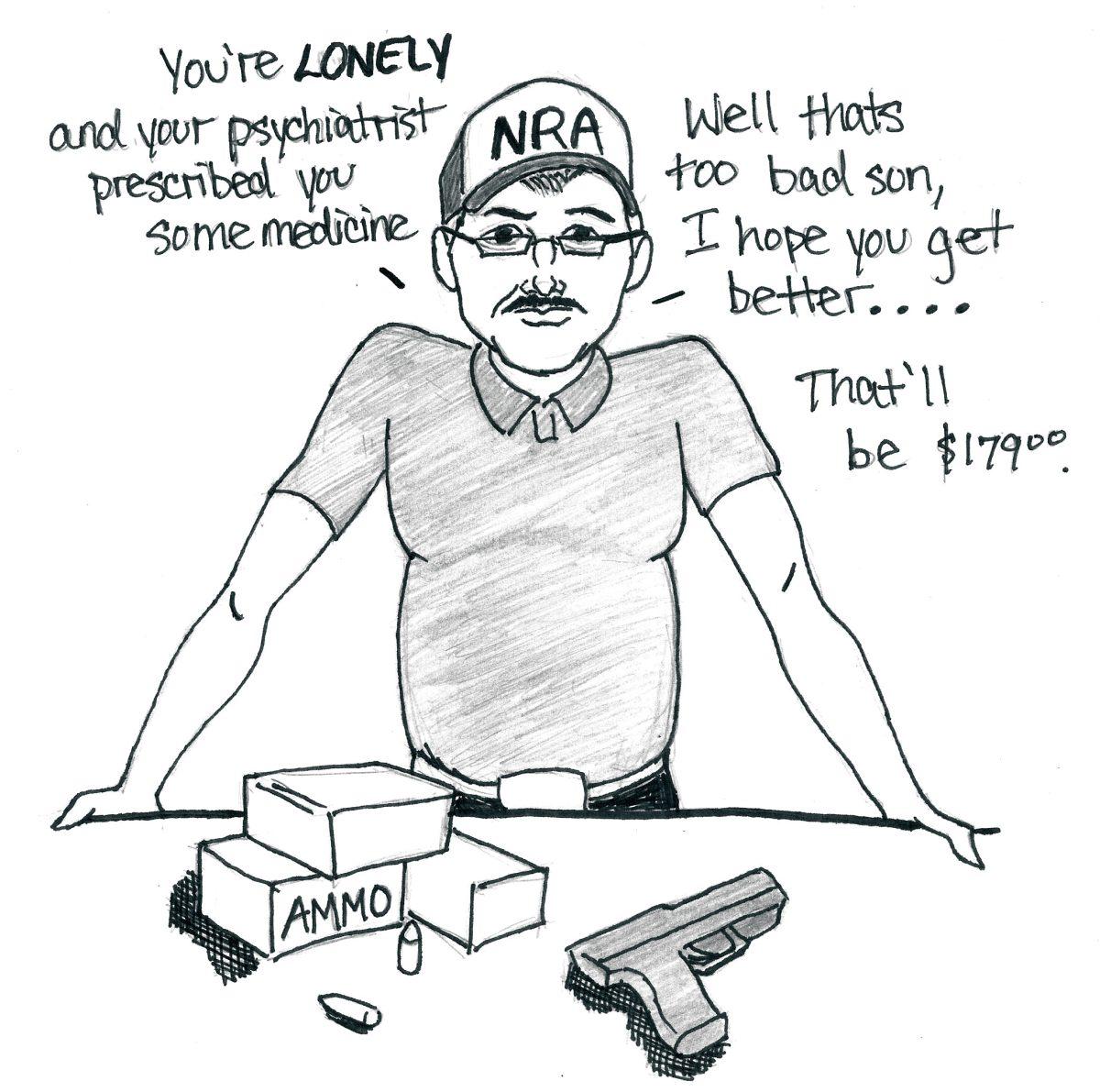Headlines of mass killings are becoming too familiar in the United States. Barely a year has passed since the tragic massacre in Newtown, Conn., when a young man suffering with mental illness and a history of chronic anger murdered six people and injured 13 others. It would be easy to place all the blame on gun availability, however, the fundamental cause of these rampages can be attributed to the failure of the mental health system.
In the latest homicide near the University of California, Santa Barbara in Isla Vista carried out by Elliot Rodger, the law was adhered to. Rodger’s parents were fully aware of their son’s major mental health problems and acquired treatment for him since he was in elementary school. They increased that treatment as his mental health visibly deteriorated as a teenager. According to Rodgers’ memoirs, he received treatment from multiple health professionals who prescribed him anti-psychotic drugs.
California is considered one of the states with the strictest gun laws in the United States. Rodgers purchased his semi-automatic weapons legally. Only a criminal record, treatment at a mental health hospital or involuntary commitment would have hindered him. The problem arises when treatment for mental illness does not prevent the sale of guns, which urges for stricter mental health laws.
It is a travesty that a single act such as Rodgers’ could have been avoided, especially considering that he publically posted a video of himself that illustrated his delusion and violent thoughts.
Current mental health laws allow patients the right to self-determine mental illness. It is incomprehensible to have a system of laws that puts mental health decisions in the control of unstable. California’s law states that one can only involuntarily commit someone who is deemed an immediate threat to him or herself, or an immediate threat to someone else. The hold can only last for 72 hours, so once that time is over and there is no extreme threat, the person is released.
According to the National Alliance of Mental Health, one in four adults, or approximately 61.5 million Americans, experience mental illness in a given year. The system needs to be transformed so the power belongs to the professionals, the caregivers and the police. In addition to this, there needs to be a reduced standard of what is classified as ‘harm’ for an involuntary hold in all states and a much longer stay than 72 hours.
When the authorities are called on to perform a well-being check, they need to be given the power, the means and the authority to carry out a thorough check. The check would ideally consist of a full search of the person’s home and social media accounts. If the condition of mental health remains the same, the mentally ill and their families will be dealing with their demons alone, and we’ll be faced with more headlines of vulnerable people who commit unspeakable violence.











